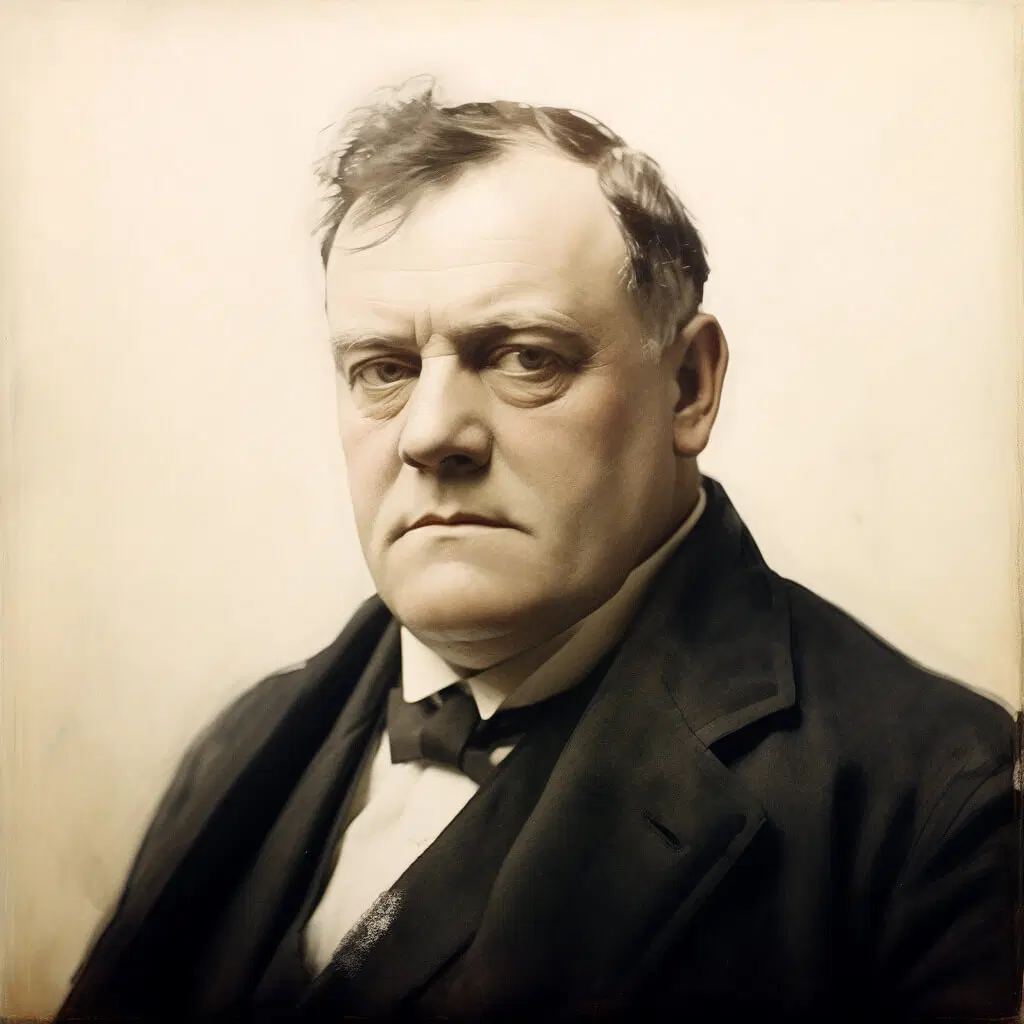
Hilaire Belloc (1870–1953) was a renowned Anglo-French writer, poet, historian, and social commentator, known for his witty, satirical poetry and sharp political commentary. He played a significant role in early 20th-century British intellectual life and was admired for his versatile literary output, which spanned across various genres, including essays, novels, and verse.
Hilaire Belloc Biography
Hilaire Belloc Poems
Hilaire Belloc’s poems are a blend of humor, moral lessons, and social commentary. Many of his poems reflect his belief in the importance of tradition, order, and moral discipline. Below is a list of some of his most notable poems, accompanied by a brief introduction to each.
1. Cautionary Tales for Children (1907)
One of Belloc’s most famous poetic works, Cautionary Tales for Children consists of a series of humorous poems that teach moral lessons to children. The poems often feature children who meet disastrous ends due to their bad behavior, such as “Jim, who ran away from his nurse, and was eaten by a lion.” Belloc’s playful language and witty rhymes make this collection a staple of children’s literature.
2. The Bad Child’s Book of Beasts (1896)
In this collection, Belloc uses playful verse to depict various animals, each with a lesson on the dangers of bad behavior. The poems feature exaggerated descriptions of animals, from the “thoroughly wicked” kangaroo to the “nasty” monkey. The tone is light-hearted, yet subtly moralizing, warning children of the consequences of behaving poorly.
3. The Hyena (1911)
This is one of Belloc’s more somber poems, focusing on the nature of the hyena. Belloc’s use of the hyena as a metaphor for untrustworthy and treacherous individuals resonates with his view of the world as one filled with moral and ethical dangers.
4. Matilda, Who Told Lies, and Was Burned to Death (1907)
This poem is another example of Belloc’s Cautionary Tales. It narrates the story of a young girl named Matilda who lies to everyone around her until, in a tragic twist, she tells a lie that leads to her untimely demise. The poem uses dark humor to underscore the importance of honesty.
5. The Poet’s Way (1910)
A reflection on the role of the poet in society, this poem showcases Belloc’s thoughts on the poet’s duty to truth and beauty. It is marked by his signature style of combining humor with philosophical musings.
6. The Ballad of the ‘Boozing’ Brute (1909)
This poem is a humorous ballad about a man who becomes drunk and engages in reckless behavior. It combines Belloc’s satire on social ills with his poetic gift for turning a serious subject into a lighthearted commentary.
7. The Pessimist (1905)
A rather cynical take on the nature of pessimism, this poem humorously examines the worldview of a character who believes that nothing will ever improve and that all human efforts are ultimately futile. It is a reflection of Belloc’s own occasional dark view of modern life.
8. The Dangers of a Good Reputation (1911)
In this poem, Belloc reflects on the ironies of life, particularly the perils that come with being highly regarded by society. It highlights the pressures of maintaining one’s reputation and the often-unrealistic expectations placed upon individuals.
9. The True Lover’s Knot (1915)
This romantic poem explores the idea of love as a binding force. It is one of Belloc’s more heartfelt pieces, demonstrating his ability to move beyond satire and humor to capture the complexity of human emotions.
10. The Spider and the Fly (1912)
In this poem, Belloc uses the classic fable format to tell the story of a spider who lures a fly into his web with false promises of hospitality. It serves as a cautionary tale about the dangers of trusting strangers.
Hilaire Belloc Quotes
1.”The first and greatest thing is to make yourself a good and proper man.”
2.”The effect of the world is not so much the discovery of new truths as the loss of the old ones.”
3.”I am not a pessimist, I am an optimist who has read history.”
4.”To learn is to be in a continual state of transformation.”
5.”A man who has no religion is a dead man, a spiritual corpse.”
6.”The worst of all curses is to be born into a rich family.”
7.”Nothing is more certain than that the future will be the child of the past.”
8.”The best way to be happy is to be a Christian.”
9.”If you want to make a fortune, you must first make a reputation.”
10.”The only thing to do with a good woman is to love her.”
Hilaire Belloc Facts
1.Dual Nationality: Belloc was born in France but moved to England as a child, holding both French and British citizenship.
2.Avid Traveler: Belloc traveled widely throughout Europe and even ventured to North Africa, where he wrote about his experiences.
3.Catholic Faith: Belloc was a devout Roman Catholic, and his faith played a significant role in his writings.
4.Political Life: Belloc was elected to the British Parliament in 1906, where he served as a Member of Parliament for ten years.
5.Prolific Writer: In addition to poetry, Belloc wrote extensively in genres such as history, travel, biography, and political commentary.
6.Influence on the Inklings: Belloc was a significant influence on the Inklings, a group of writers that included J.R.R. Tolkien and C.S. Lewis.
7.Family Tragedy: Belloc suffered the loss of his wife, Elodie, in 1914, an event that deeply affected his outlook on life.
8.Works on History: He was a notable historian, known for works like The Crisis of Civilization and The French Revolution.
9.Humorist: His wit and satirical humor made him a favorite among readers who enjoyed light-hearted but insightful commentary.
10.Posthumous Recognition: Belloc’s works continue to be studied for their political, social, and moral insights, maintaining his place in British literary history.
